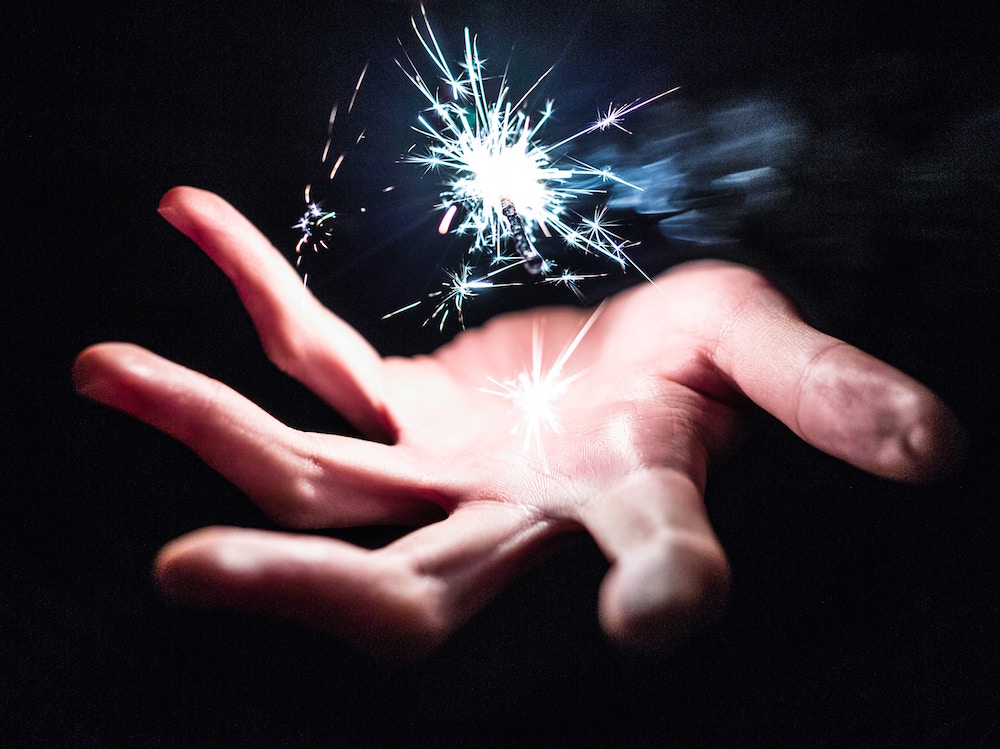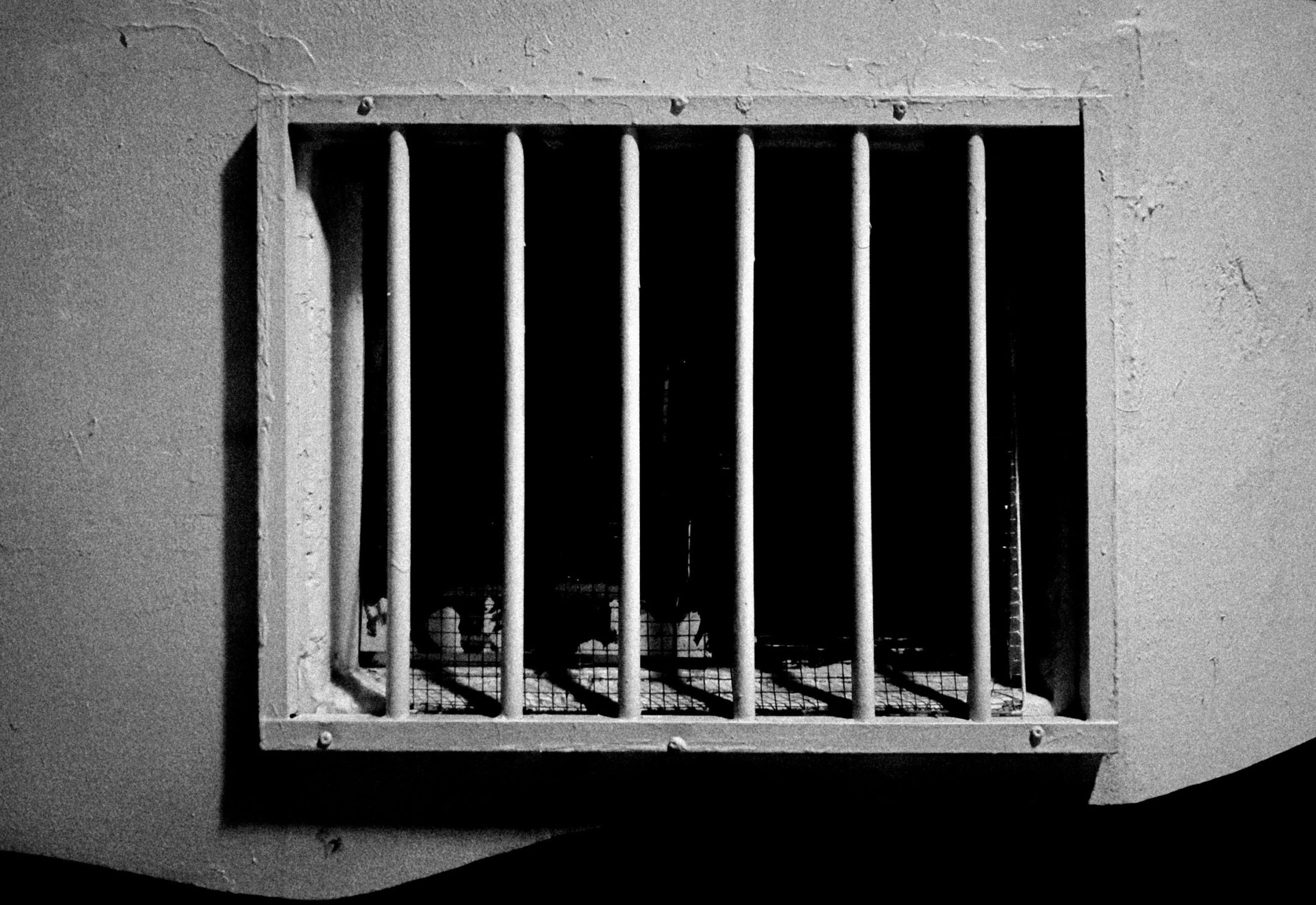interviews
“The Heavens” Is a Time Travel Novel About Political Hope
Sandra Newman on finding inspiration in Shakespeare's the Dark Lady

Sandra Newman’s newest novel, The Heavens, haunts you like a dream you cannot shake. It is the type of book that requires you to work and pay attention, yet lulls you into a false sense of understanding, at least in the beginning. When you first meet Kate and Ben, their New York circa 2000 is idyllic, yet slightly off, still believable in the way dreams often can be. Less believable, but still dreamlike, is the fact that Kate time travels when she sleeps. She becomes Emily, a 16th century woman modeled from the real life of Amelia Bassano, the Dark Lady in William Shakespeare’s sonnets. Emily’s actions in the past create changes in Kate’s present and in between the dream and real life, is Ben, Kate’s boyfriend who loves her deeply but isn’t sure how to cope with Kate’s increasing detachment from what he sees as real life. You find yourself feeling as Kate does, awakening each day emerging from the past having to remember what is the same and what is new.
At once, The Heavens is a piece of historical fiction, time-travel fantasy, romance, political fiction, and literary achievement. But such a feat is not surprising from Sandra Newman, the woman who gave us The Only Good Thing Anyone Has Ever Done, shortlisted for the Guardian First Book Award, Cake, and The Country of Ice Cream Star, longlisted for the Baileys Women’s Prize for Fiction and named one of the best books of the year by the Washington Post and NPR. She is the author of the memoir Changeling as well as several other nonfiction books. Her work has appeared in Harper’s and Granta, among other publications.
I spoke to Sandra Newman about her inspiration for the book, depicting political hope in fiction, and being the loved one of someone with a mental illness.
Tyrese L Coleman: I’ve been thinking about this book ever since I read it. I have a lot of writerly questions, but I want to talk broadly first about the book and about where the idea came from. I did read in an interview that Emily is based on The Dark Lady in William Shakespeare’s sonnets, Amelia Bassano. I’m assuming that’s where the idea came from.
Sandra Newman: It’s sort of complicated. Amelia Bassano is one of the candidates to be the Dark Lady, she’s a historical figure who later went on to be a poet in her own right. But, at the time that my novel covers, she’s only 21 and had not written anything that we know of. And everything that I write about her is essentially historically accurate. That was her life.
I think all writers when they say what inspired the novel that they’re writing-what inspired it was trying to think of a novel to write about for about a year until you finally come up with something. So, that’s the real backstory.
But my husband and I have a little game that we play where we come up with premises for TV shows and books that are just jokes. His classic one is an idea for a TV show of an improv troupe that solves crimes, which was, I think, the all time winner. This one was basically Outlander, but instead of it being a Scottish laird, it’s Shakespeare she goes back in time to. And originally, it was just a joke, but my husband kept telling me it was a good idea for a book and eventually, I sort of turned it around in my head and saw how it could be a literary novel. The idea of writing 16th century dialogue was really intoxicating to me. And at first I thought it was going to be beyond me because of the 16th century details. I am not a historian, not very good at research. But I managed to do it.
TLC: I was very impressed and amazed by the dialogue, and the 16th century dialogue, specifically. It’s a novel, so you don’t necessarily know what is made up, but it felt very authentic, though I don’t know how authentic I can say it is because I’ve never been to the 16th century but it felt involved, that you took time to make sure you got it right. Am I right about that? Did you spend a lot of time looking at language from that time period and finding ways to incorporate it?
SN: Yeah, I did a ton of it. Reading a lot of 16th century literature and letters, and the few diaries that I could find. I am sort of lucky that nobody’s been to the 16th century so it’s not like somebody else can really say that I am wrong in my version of it, but it is about making it feel authentic to a contemporary reader and to be able to understand it. That is the thing. If you go too far, it’s actually too hard to understand.
TLC: I feel like this is also related to the world-building in this book. When I first started reading it, I was just going along and not really questioning the changes in the world that are different than our reality. But there was a moment where we find out a change with Ben’s mother that is different than how she is discussed earlier in the book. It was very subtly dropped in there and I was like “whoa, wait a minute!” and it was the moment that I realized that things were shifting around the characters as the book goes on. I am very intrigued by how you did this. Did you plot it out or was it an organic thing?
SN: It was sort of an organic thing. A lot of it was getting it wrong and then fixing it and then getting it wrong and then fixing it again. In the earlier drafts, it would seem too abrupt. Sometimes it would seem like I changed something and it was a mistake, there was no way of knowing whether it was a mistake. So it had to be at the point where the reader would be clued in enough that the changes were deliberate and that they had to interpret it rather than the writer making a continuity error. It took a really long time to get it to a point where it worked and it read as a novel rather than this disjointed thing where you couldn’t tell what was going on.
TLC: I read in your interview with NPR where you talked about the different ways someone could describe this book. It could be a romance. It could be a dystopia. It could be a fantasy, time travel book. Were you ever concerned about the fact that it wasn’t one thing or another?
SN: I don’t think so. I think that’s just the kind of book I write.
[My book] demands a lot of investment from the reader to put together that whole puzzle.
When I decided to write this book, I was talking my agent about it, and she was naturally concerned I would write a book that didn’t sell and I’d die in penury, which is always the risk. So she was saying, “You know Sandra, maybe you should write a book about Shakespeare’s Dark Lady and make it a book about Shakespeare’s Dark Lady instead of adding all this stuff to it because I know you,” she said, “and I know you are going to make this insanely complicated.” And of course I ignored her and made it insanely complicated. It makes it a lot more interesting to write. I’m a writer who gets bored easily and loses the passion, so that helps me a lot. It’s kind of demanding a lot from the reader too. Its demanding a lot of investment from the reader to put together that whole puzzle.
TLC: I agree. I spent more time than I normally would during a novel reading experience going back and making sure I hadn’t missed anything. It was almost like a reenactment of what was happening in the book itself because Kate is constantly relearning what her reality is outside of the 16th century when she wakes up in 2000 or 2001. Unfortunately, for Kate it wasn’t as enjoyable as it was for me.
One of the themes I kept coming to was this idea of utopias and dystopias. I felt like this book was about how you cannot have a utopia without also having a dystopia. Can you talk about that concept?
SN: The way that the frame of Kate going back in time and changing history and making things gradually worse is partly a way of having that initial world—that is better than our world but just subtly better—it’s a recognizable world but there are these things in it that are like the things that we might have dreamed of achieving but which never somehow seem to happen.
Partly, I wanted to talk about that or depict it in fiction: that feeling of political hope that we have sometimes where we can feel how little it will take to have a sane world, not a perfect world, but a world where things were moving in a good direction, where we felt that our efforts were being used to make a better world instead of our efforts being squandered to make a world that is dying. It was sort of about that and feeling out of control. What do you do to stop that deterioration? We don’t know. Each of us is just one person and somehow it seems that everything anyone does either goes nowhere or makes things worse. So, for me it was about that feeling specifically.
I know a lot of political activists, and they are the saddest people I know (that may be because I don’t know any environmental scientists). It just feels that everything that you try to do is terribly little, if anything at all, and a lot of people spend their life as political activists fighting a fight where at the end of their lives, things are worse instead of better.
TLC: I want to switch here and discuss the themes around mental illness, specifically the relationship between loved ones and those who are suffering with perceived mental illnesses. I don’t know how I felt about Kate and Ben’s relationship, considering his treatment of her. I wasn’t sure whether or not he could be forgiven for his treatment of her.
SN: You reasonably and naturally would be terrified that you would be dragged down with them [and their illness] and that’s what is happening with Ben. To the degree that it’s forgivable, I don’t know. The whole thing is so tragic, you sort of see that Ben doesn’t forgive himself, and, as with many people who can’t forgive themselves, he turns into a worse person as a way of coping with that. He loses himself.
TLC: I have a severely autistic son, and sometimes, it’s hard for me to look at his behavior and not compare it to his brother’s behavior, which is “normal” or “typical.” I’m sure in my son’s mind, everything he does is normal. So I wanted to ask you about that dichotomy between the lived experience of someone who is suffering from “mental illness” and whether or not it is the people outside putting that restriction on them.
I wanted to depict that feeling of political hope where we can feel how little it will take to have a a world where things were moving in a good direction.
SN: In the book, obviously, Kate is right about what is happening. The book comes down on her side. I don’t feel confident enough in my reality to really be an advocate for consensual sanity. I don’t feel comfortable telling those who suffer from mental illness that they’re wrong — you’re not hearing the voices of ghosts, you’re not hearing what you think you’re hearing, your version of reality is just wrong. I don’t feel comfortable saying that except when it’s an extreme and obviously dangerous thing.
It is difficult. We’ve created a world that is somehow, despite being so much safer if you follow all the rules, so dangerous if you can’t follow the rules, and so punitive for those who can’t behave in the way we expect them to behave. There’s no room for a person who would be the fool in the 16th century, who would be kept by someone as a fool and have their behavior tolerated. It might not be the best life but it would be an indulgent life.
TLC: You mentioned how Ben changed and became a worse version of himself because he didn’t know how to deal with what he saw as Kate’s mental illness but there was still a lot of love there, the love changed, but it still existed. It’s hard to disassociate your needs from the love you feel for the other individual and I thought that was very poignant in the book.
SN: It becomes this one sided thing where one party has to care for the other party long term and cannot expect anything from them, which happens with mental illness. Ben finds that with Kate because of the time-travel thing. People just cannot be responsible for how they treat you, and, up to a certain point, you can just absorb that, and absorb that, and absorb that, and keep it in parenthesis and separate from the love that you feel for that person, but that isn’t really healthy either. When it’s two adults who are in love, it doesn’t feel like a relationship anymore at a certain point.
It can even come to feel to the person who’s ill as if they’re being kept as a prisoner because they’re constantly being managed and being told what to do and their feelings are being managed. They wake up and find breakfast on the table, and the first thing in the morning is a long conversation about how you have to eat breakfast in order not to get out of control later in the day. It no longer feels like a relationship and both parties want to be free of it.
TLC: How do you want readers to read this book? Do you want readers to think of Kate as having a mental illness? Do you want us to think of her as traveling through time? Do you want us to think about it as both? Or is the whole book itself a dream?
SN: Oh, I definitely want the reader to see it as Kate traveling through time in reality. From Ben’s point of view, she really is mentally ill. There is a reality in the book, a consistent reality, that she is correct about what happening and he’s mistaken.
The book is also about how you can have a belief, as Ben does, which is completely consistent with what you see and there’s no reason to doubt the belief, and it’s incredibly convincing, and yet, you’re mistaken, which happens to all of us sooner or later. We end up realizing that we have completely and incorrectly interpreted something very important in our lives. Two years later, you look back with one new piece of information and everything falls into a different pattern.









